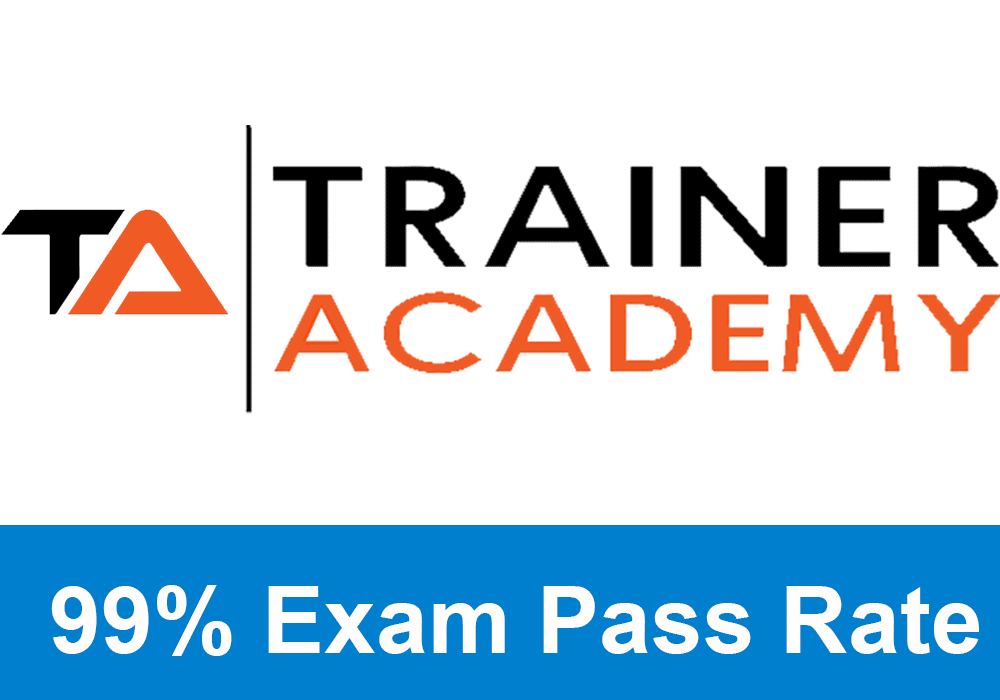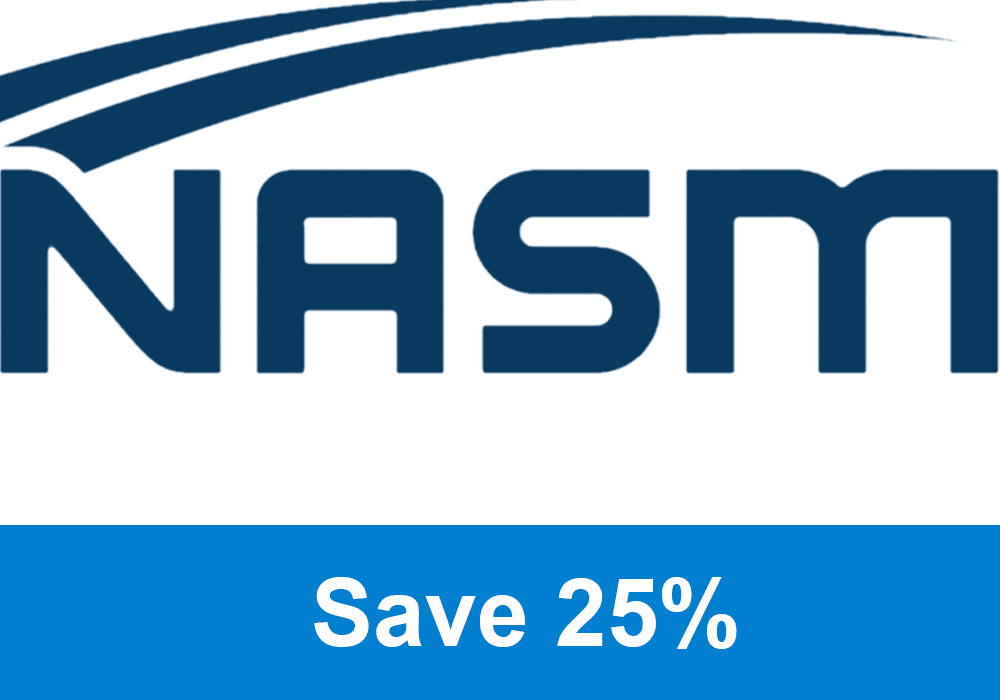
If you have not yet signed up for the NASM PES certification, receive a big discount here.
Get your copy of the NASM PES exam cheat sheet. It helps immensely in studying for the exam.
My PTP students report cutting their NASM PES study time and effort in half with Trainer Academy.
Benefit from the Exam Pass Guarantee and Retake Fee Guarantee. Plus, take advantage of my current discount code PTPJULY for 50% off the MVP Program (Ends July 7th, 2025).
Try it out for free here to see if it’s right for you, or read my detailed review for further insights.
Chapter Goals:
- Be able to define what an ergogenic aid is.
- Find the common substances that we use to enhance our performance.
- Find the effects of ergogenic aids.
- Be able to analyze the ethical and legal issues relating to the use of ergogenic aids.
Introduction
The term ergogenic is one that means work generating. So, this will be something we use to enhance athletic performance in some way, potentially.
We have many ways in which the athletes will try to do this.
Because there are so many, it becomes hard to weed out the ones that really are not going to help and those that actually have proven results.
An ergogenic aid that is effective will usually enhance the ability of the body to perform some specific functions that are involved in specific forms of sports performance or training adaptations needed for the sport.
Generalized Concepts Relating to Ergogenic Aids
Acute Effects on Exercise Performance
Some ergogenic aids can affect mental and physiological functions after being ingested. This is the same as water and carbs affecting blood sugar levels and muscle function rather quickly.
Chronic Effects on Training Adaptations
When taken over a long period of weeks and participating in training, the ergogenic aids may enhance the strength and muscle mass for certain training styles.
Conditional Ergogenic Effects
Sometimes the ergogenic aids will be very specific in their effects and only work in certain situations.
Conditional Ergolytic Effects
Some ergogenic aids may be beneficial for some people or have detrimental effects for others.
Specificity of Action
Many ergogenic aids enhance only specific levels of performance.
Nutritional Status Dependent Effects
The nutritional status will be considered a specific condition in which the conditional effects will be determined.
Exclusive PTP CPT Offers |
||
|---|---|---|
Most Popular Cert | Best Online NCCA Cert | Best Study Materials |
Gold Standard Cert | A Good Option | Best CPT for you?  |
It is often quite difficult to know the specific amount of nutrients needed for the nutritional effects to take place.
Nutritional Strategies as Ergogenic Aids
The nutrition planning should match that of a particular sport’s demands, which may be sufficient and not need any ergogenic aids.
Protein and Amino Acid Supplementation
Remember that proper protein consumption in the diet will be necessary for the right action to happen in the body.
Excessively high intakes can harm the body and any training adaptations, but it is harder to reach these levels.
Due to plants’ lower protein quality, vegetarians may need 10% more protein intake than the rest of the population.
Protein is often taken as an aid so that the diet can reach the proper levels when the needs are quite high for protein.
The supplementation of arginine has been seen as beneficial in many clinical applications. One of the biggest benefits has been synthesizing the growth of hormones and insulin.
Branched chain amino acids are one of the more popular supplements we see in fitness and they consist of the important leucine, isoleucine, and valine amino acids. These have been found to significantly affect muscle protein synthesis and many other areas of the body.
Glutamine is an often used supplement that is studied for its ergogenic effects, but it is not an essential amino acid.
Lysine is an amino acid that might be more limited in the diet for some people, and thus it is supplemented more than some other things.
Vitamin
Vitamin supplementation is likely to be ergogenic with any vitamin if the person is seen to have a low intake of it. This is due to the need for vitamins in the body anyways and inadequate intakes needing to be fixed for proper function.
An example of a common deficit needing supplementation is going to be with vegetarians needing vitamin B12 due to insufficient levels in the diet with their food and lack of meat specifically.
It is more beneficial to receive the vitamins that we need through the diet since there are so many other good effects that come from the food products, but it is also very important to receive the proper levels of vitamins anyway so that supplementation can be quite beneficial.
Vitamin D is another prime example of a vitamin we may need to have supplemented as it is needed in reasonable levels through sunlight, but when it is not received this way, we should take them in through the pills and fortified foods with this vitamin.
Mineral Elements
Like the vitamins, the essential minerals will be needed at reasonable levels, albeit much smaller than the vitamins.
Iron is one of these minerals that we see to be deficient more often than others in athletes. This is truer for women athletes.
Iron is often fortified in many foods and specifically in milk.
Exclusive PTP CPT Offers |
||
|---|---|---|
Most Popular Cert | Best Online NCCA Cert | Best Study Materials |
Gold Standard Cert | A Good Option | Best CPT for you?  |
Common symptoms of being deficient in iron are fatigue, impairments in cognitive function, depression, reductions in the function of the immune system, and then poor regulation of body temperature levels.
Some other common minerals we see being supplemented include zinc, sodium, and calcium.
We also have some more advanced problems with something known as the female athlete triad. This is, of course, a major concern for women and not men.
The female athlete triad has much to do with the health of bones and calcium levels.
The three things at work in the female athlete triad will be disordered eating, amenorrhea, and osteoporosis.
Electrolytes are grouped into this category; specifically, the magnesium we take in can often be too low for performance.
Non-nutrient Ergogenic Aids
Many compounds are not nutrients that have been found to be effective ergogenic aids.
Creatine
Creatine is synthesized by the human body naturally from methionine, glycine, and arginine.
2/3 of the creatine in the body will exist in phosphorylated forms so that it can quickly replenish ATP and ADP for high intensity muscular efforts.
This will again be used for the ATP – PC system of anaerobic energy.
When supplementing this, they often load it for one week in excess amounts and then decrease it to around 5 grams per day.
This works to raise the levels stored in the body and then keep them there. It will increase the ability of the athlete to work at high intensities.
Beta-Alanine
This is an amino acid that serves as the precursor for carnosine, which is the main acid buffer for the muscles.
We have the generation of hydrogen ions when fuel is made into ATP for energy use, so the acid will build up no matter what.
Increasing the stores of this beta-alanine will increase your capacity for buffering.
Nitric Oxide
Supplements that are reported to increase nitric oxide levels have grown in popularity recently.
Nitric oxide works on the dilation of the blood vessels of the body, which may improve the delivery of nutrients and important things through circulation.
Stimulants
We use many legal and illegal stimulants to obtain benefits from ergogenic aids.
These range from herbal and synthetic sources of caffeine and ephedrine to controlled drugs like amphetamine and cocaine.
Caffeine
Many people will consider caffeine to be the most used drug in the world.
Many athletes will take caffeine daily through drinks and foods, and it is important to know that it is a stimulant that affects our central nervous system, the heart, and the skeletal muscles.
The best dosages have been found to be 3 – 6 mg per kg of body weight when it is taken one hour before exercising.
This will also vary depending on the type of caffeine ingested, the amount you have used, and the process for brewing the food item.
Banned Stimulants
There are over 50 stimulants that are banned in the world for sports competition, including amphetamine, cocaine, ephedrine, and lesser known drugs with structures similar to these and the same biological effects.
Anti-catabolic and Anabolic Substances
For many sports, building muscle mass and strength are major goals.
There is a great variety of natural and synthetic substances that are linked with athletes and assist the natural responses of the body to strength training.
Ergogenic aids that specifically encourage the development of strength usually increase muscle mass and are sometimes hypertrophic compounds.
We need to know about the androgenic anabolic steroids and other hormones that cause similar effects to testosterone and are banned by all sports in the world.
Prohormones are another form of supplement that is essentially the precursor for the hormones in the body and are used to promote strength and the building of muscle mass.
Anticatabolic substances are the ones that will reduce the breakdown of muscles when we take them in.
Blood Doping
This is a practice we see in more aerobic sports where the athletes wish to increase the max oxygen uptake and enhance their performance during endurance.
This is seen as illegal and unethical and is banned in basically all organizations.
The basis of this is that an athlete’s blood is removed and then stored for later while the athlete restores the lost blood. Then it is put back into the body and we set greater levels of EPO which stimulates the levels of red blood cells.

 Have a question?
Have a question? 



Tyler Read
PTPioneer Editorial Integrity
All content published on PTPioneer is checked and reviewed extensively by our staff of experienced personal trainers, nutrition coaches, and other Fitness Experts. This is to make sure that the content you are reading is fact-checked for accuracy, contains up-to-date information, and is relevant. We only add trustworthy citations that you can find at the bottom of each article. You can read more about our editorial integrity here.